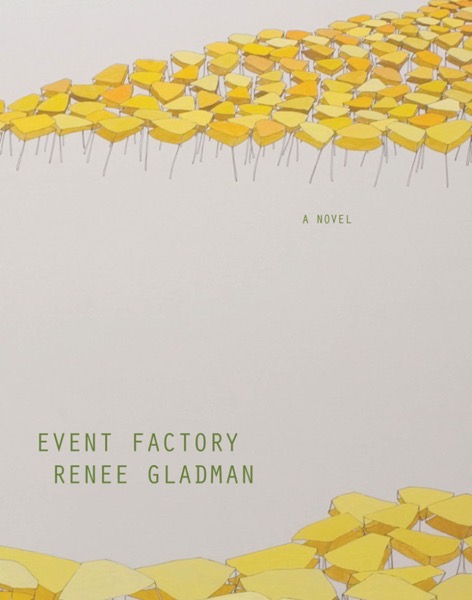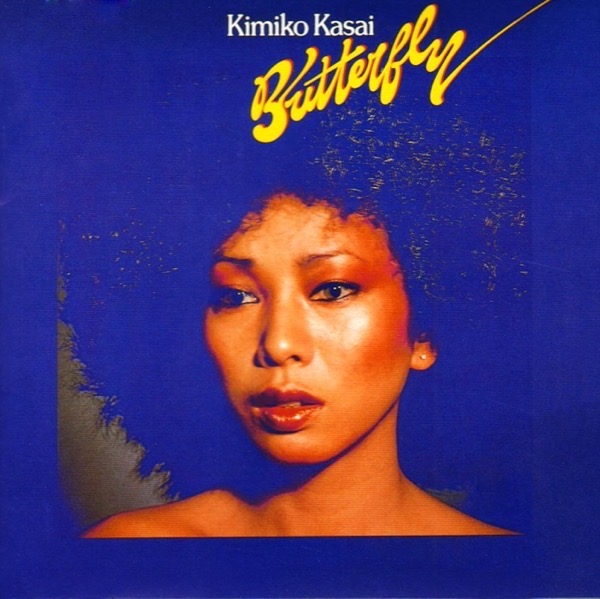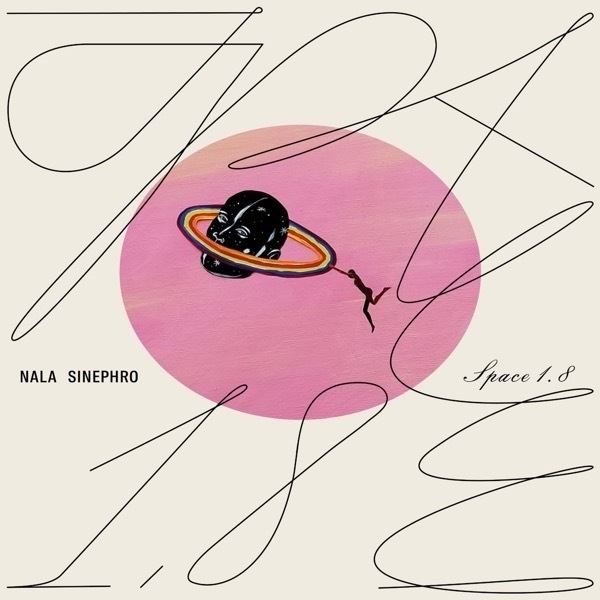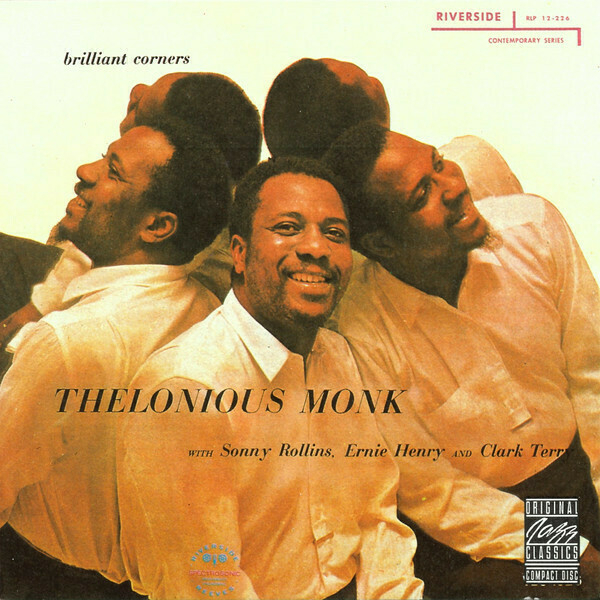-
poetry
Sunday September 1, 2024Sarah Hurwitz has a Zen “don’t know” before-thinking enlightenment moment on a hitbodedut retreat. I love this.
That’s all I could say: “I don’t know. I don’t know.” I was saying that over and over again until I said, “I don’t know, but I can’t do this alone.”
It was a moment of openness, of some surrender. I was so astounded that I started to cry and I thought, “I don’t know what that was about.”
Warmth in my chest as I hear her vocal audio bits through my WH-1000MX4s.
-
poetry
Tu B'shvat
Sunday June 2, 2024Having made the journey from the front yard to the back, beneath the weight of the second story where morning light was filling rooms, I was comfortable with the progress of our adolescent wildflowers. Then light filled me up between the backdoor and backfence, mild flakes of disappointment at my temples that the poppies stubbornly refuse to bloom. For a moment I considered the preposterous notion of watering the Redwood Tree. Erect there, concentric symmetrics, wheels blooming over our rented house. Me, corrected, sighing. Sharing the embarrassment with the pointed bamboo that lived partially in their shadow, flakes brushed aside. I stepped into the shadow and gazed up into the vortex of leaves. You don’t need tepid municipal sink juice. (But I’ll get some for you, you potted co-dependents that dot the interior landscape, scrubbing and smoothing the nervy corners of brutal Puritan design. You little fuckers, in comparison.) I remember where Dottie scratched your delicate conifer skin when she was given a chance to roam wild. (Too few moments with that champion, I miss you.) I push on that spot with my imagination from a mile away through my keyboard, where Dottie, me, Redwood, and microbes had a chance encounter on earth in space. I’m reminded of one time I tried striking the Redwood. The is the way that you do as a martial artist who’s curious about surfaces and transfer. There was a sharp, uneven slap, because of that sketched conifer texture. More impenetrable than cement, completely full of form. Not the satisfying feedback of leather wrapped compressed textile. There are few living things that are so dense to human body sacks, I suspect.
-
poetry
Guy outside Ritual Coffee on 5/27/24, I had a hot chocolate inside
Monday May 27, 2024The guy in combat boots with a skull reading Love In the Time of Cholera on a call through the over ear headphones with coffee.
-
poetry
Seung Sahn's Dropping Ashes on the Buddha, and chat with Seraph and Marshall
Monday May 20, 2024
Good morning
A man came into the Zen center and dropped ashes on the Buddha.
One hundred and fifty years ago men put metal penises in the earth and started burning fuel in earnest, beginning to fill the atmosphere with ash.
These men claim “Buddha is everything.” They are very strong and will hit you if you say otherwise. How do you fix their minds?
In a stroke of brilliance, I piped the morning meditation’s Zoom call audio through the Sonos. It’s quite silly though I waited so long to figure this out. Clifford’s Morning Bell Chant is wailing now. Felicitous: pausing the onslaught on my geriatric iPhone’s speakers eliminated the rheumatic gargles and burps.
Good evening
There was a moment yesterday, around the routine crepuscular slide, when Seraph mentions how the diaspora broke us. (Sambal moves around the gums.) We broke, to assimilate. We discontinued mentions of the moon cycle’s importance in our rituals. We cleared the forest from the imagination. My chest balled up. I could cry. It had been a tough Sunday already in one of those classic disorientations of a fleeting weekend. Just as a week or two of life pressures edged to the pinnacle for a breath and place to lookout with a panoramic view. (I’m thinking of the top of Bernal hill.)
I don’t love the language of broken and fixed because it’s hard, phallic. It makes me think of split wood. (I have too many planks, not enough logs to build Atul’s workshop!) My own notional machine of my mind body conjures gushier platelets. Like a pre-cum immured into being across a white plane with a left-to-right, slightly downward stroke of a palette knife squishing a wave of paint across a plain surface. I love the way paint breaks. How air bubbles create a torn moon surface. Within this mode perhaps I’m become dabs and waves. Uneven, partial, preparation for art, art substance, also a soothing transitioning item from globular mound to wave. So that’s why it’s hard to feel broke, or whatever the reverse, some architectural rebar. Nonetheless, the near-tears I felt at the invocation of brokenness are a clear indication that the door has been shut on joy before.
-
poetry
How to read A Hacker Manifesto
Tuesday April 16, 2024McKenzie Warks' A Hacker Manifesto is so bergizi (trans from indonesian: nutrient-stuffed) so I skipped to the end notes. Reading ass backwards might be the trick here. (Or spin the bottle to choose an entry point.) As you make progress, reprint and scatter the individuated sections that you’ve read, then affix them to posts along Triton’s surface.
“A free yet not merely random productivity”: this sentence gets me thinking about open source collaborations.

-
poetry
The kind of extro, outside RItual coffee on Valencia
Tuesday April 16, 2024Being around people Benching just outside the coffee shop Heads pointing down Talking Tap clink Passersby entering and exiting Entering and exiting is the point
-
poetry
Machinery: Eva Hesse, her machinery
Sunday March 24, 2024

-
poetry
From Amy Kurzweil at The Ruby in San Francisco on February 29th, 2024
Monday March 4, 2024The room was cold. The light a little caustic. Acoustics wan. From the back row I had to squirm to the side to see Kurzweil’s full face. Like 17 people there, maybe? Intimate, secret, and in on it. Rugged cool!
“Paper is pleasurable.”
“My life for a while was in pages.”
“My visual secret is that all my characters look like me.”
-
poetry
Two drinks max or else
Tuesday February 20, 2024The bartender at Berreta is asking if I like bitterness and I answer yes. At this point I’m open to interpretation and open to interpretations. I get Cynar, a hefty portmanteau that smoothes out my technologies of resistance across the bar plane. An incubation space for monsters. To the right of my glass, an open challah bag is a gaping hole.
-
poetry
Sunday Prayer before heading to altitude
Sunday February 4, 2024Saying no to Lucy Ives everywhere and hitchhiking Leather Blvd. sipping cool aid
Kita anak-anak keren
-
poetry
Hangry
Wednesday January 24, 2024Can you eat here
Can you get food here
I can get food here
I will get food here
This place is too expensive for you
I will eat at this place
There is another food for you over there -
poetry
Relationships in this economy
Wednesday January 24, 2024“I didn’t realize what we had.”
He couldn’t see from the view within his stomach. Nerves are too high.
Well, you work full-time, overtime frequently because it’s only a five-day work week. Your hands are full cutting a path through what the racists made today.
Your Yeezies are barely scuffing the stacked monomers, my guy! Where did you come from? There are dicks the size of city blocks clouding your view. Same-day tsukumogami are drilled into the soil and rock and you trip on them.
You weren’t taught to realize her/they from the muscles between your shoulder blades, reaching behind you to turn it around, reaching in all four directions with the somaticists. Need I remind you that we only had one chance to spin the title track. (Ascenseur pour l’échafaud). You barely heard the record pops. The time that remained didn’t leave us one breath to talk about the sound before the rich were on the ballot again.
Written at the kitchen counter. My overcooked omelette lays on the cutting board. The sangha relaxing down into the sunrise and into memory.
-
poetry
Modern cities are inhuman: Vol 1
Wednesday December 13, 2023 -
poetry
Le Guin on write what you know
Monday December 4, 2023
-
poetry
I slept pretty well last night
Monday December 4, 2023 -
poetry
Book review: Event Factory
Tuesday November 14, 2023
I’m not sure how far Gladman’s fantastic Ravickian worlding has spread betond smaller literary, artistic, critical conclaves. She reached me by way of Lucy Ives' article on the “weak novel” (after listening to Ives on a BISR’s podcast paneling the same topic). (I’ve since bought almost every book Ives mentions in this article; I’m on a rapid tour of postmodern anti-novels.)
I’m curious who would fancy this book. I loved it. But I love a good ontological drift through space-time. Are we meant to be reading the artifactual record of the protagonist’s survey? Nope. Maybe? This isn’t the same kind of world-inhabiting, context-laden ethnography that frequents the beginnings of book parts and chapters in sci-fi and fantasy volumes. Well, perhaps it is a long opener as the first of many books.
What feels most real is that Gladman’s text is constantly in question.
Dorothy (the publisher) leaves far too much margin.
The story can hardly get going since getting past “Hello” is nearly impossible. It’s some kind of language issue. But also architectural, since the built world is in some kind of crisis or revolution. Something really bad is happening on Ravicka, and we don’t get enough for a complete analysis. What’s maddening is that the locals seem to brush it off. But it’s not a total wash in the yellow. There are wonderfully concrete and vivid moments of the Ravickian world. It’s not simply abstract for abstract’s fancy. There are stakes here for Gladman. That’s what makes this anti-novel of sorts hard to dismiss. We oscillate between a strong foothold and floatation. Personally I find it seductive-enough.
Is Ravicka even a faraway planet at all? Could other worlds be close, not worlds away?
There are also gestures that feel fresh and exciting, partly because they are given so much room. Is this record incomplete? Were parts intentionally left out? Were they lost? Did they never happen? Sex with strangers. Music is important. Underground civilizations. Dancing is important to speak. Writhing to speak. Unlikely inter-species/cultural collaborations. Going to and waking from sleep. Sleep is important. Obvious love lost, longing. A book that de-centers the written and spoken word, somehow, while concerned with it and the slippage of translation; including awkward encounters with native speakers and their disinterest. Gladman’s person is put through tenderness and saddening separation with every encounter.
This is a small book that you cannot breeze through. But it is pleasure book bound.
Reproduced from Bookwyrm
-
poetry
Book review: The Hospital Ship
Tuesday November 14, 2023
Bax evades a typically satisfying narrative arc for recondite reprints of medical texts and war-time dispatches/memoir peppered among a minor smatter of pro forma obligations to a novel about people surviving large-scale tragedy. But readers should consider this as a book at play with the conventional. Albeit a spirited one. All aboard.
I suspect this is will be either a quick read for you, or you’ll drop it quickly into the gift bin. When the story pokes through the fog of secondary material, you enjoin the nerved doings of hospital staff aboard a large vessel skirting the edge of some broad-spectrum of disaster. The healing process for the ship’s patients, the interpersonal affairs of the staff, an encounter with counter-cultural politicos that attempt to take the ship as a commune.
Aspects of this world on the verge will feel familiar to the overwhelm of our the early 21st century. This makes the Hospital Ship more timeless than not. It’s impossible to determine if the catastrophe(s) are manmade or other, viral, psychological, climate, war, …. A world in crises, multiple, unknowable crises converging – autism in children, mass crucifixions, general depopulation.
Scenes of sex and sexuality are numbered in this book. The fleshiness, cigarette smoking, feels well-situated to the 70s. Some second wave feminism woven through; although I felt it was oddly (perhaps lazily) retrofitted in the form of Sheila’s brief, monochromatic biography. Kinda shoved in there. I’m not convinced Bax was pushing the subject of women’s lib radically, at least any more radically than mainstream Leftism of the time. But maybe that’s part of the play – what is the correct rousing politics in the face of amorphous, multi-faced threat.
The fleshiness ages ok, although a bit trite and verging on cringey because the character perspective is always cis-dude. Was the narration of a Vietnamese prostitute healing, with literal sex, a former Wall St. banker stuck in a psychological malaise a refreshing take? prosaic? satire? for the times? I’m not enough of a comp lit scholar to understand the context. How, Euan, the main character, erratically responds to the process of intimacy and sex working it’s magic is fun. Especially as the book explores his difficulty with achieving lasting, satisfying sex and love with Sheila.
Overall enough intrigue as an example of early postmodern sci-fi, still-relevant themes, certainly a romp of prose. But not for everyone, I suppose.
Reproduced from Bookwyrm
-
poetry
Collected turns of phrase
Sunday November 12, 2023“wish embroidering” - Eugene Lim, Dear Cyborgs
“the air quicken before rain” - Robert Glück, Margery Kempe
“His ears and tongue felt carbonated” - Samuel Delaney, Troble on Triton
-
poetry
Friday November 10, 2023I watched Eastern Promises last night and this morning
And Donnie Brasco
And The Departed
Before -
poetry
City Pop (Vibes) Immaculate Delusions
Friday November 3, 2023
It’s a bizarre aesthetic (and rhetorical) leap from Richard Mayhew’s Delusions to the similar strong chromas, hues, and deep values of Japanese City Pop album art. But how many colors are there in the world. Every visit to SFMOMA I drift to Mayhew. Into his drives, spirals, through landscape that “reclaims the wilderness for the dispossessed” for indigenous and Black planetary citizens, family. Paint over the prospector. Disrupted manifest linerality, letting the land announce itself. It’s wild how this painting ushers your gaze forward and back.
But onward to Just Enough™️ aesthetic relativity for my mental leap and a drift through space-time.












-
poetry
Jazz Vol. 1
Thursday November 2, 2023




-
poetry
Thursday October 26, 2023What other optimisms lie in wait on the Enterprise NCC-1701-D?
-
poetry
Wednesday October 25, 2023Just discovered Sun Ra’s recording at Haverford College, 1980. The story of this record is bonkers.
Students running concert series book jazz after previous acts flop - the Talking Heads! (Elvis Costello was also booked but cancelled after said flop) 🤦.
Ra appears suddenly after cancelling two weeks prior. The only available piano is an electric Fender Rhodes. Ra fiddles around on the spot backstage.
Resulting performance is mesmerizing, chill, masterful.
#sunra
-
poetry
Abolish The Family by Sophie Lewis
Thursday July 13, 2023But uh oh those summer nights. Right on the heels of a transformative family weekend! When Theo laughs, the world is a single flower. What is your family’s pronoun? Are the flower and Theo the same or different?
-
poetry
Thursday February 16, 2023The other day I played the dérive along Valencia after a salad with a colossal heft of blue cheese. I found my way to Dog Eared Books. I always end up there. However, this time I grazed through atypical sections; like the politically charged cabinet below the register with the latest thunder for white supremacy; the sale rack; a quick glance for sci-fi, but nothing more this time.
Under philosophy I found Han’s Burnout Society. These pocket-sized books are almost irresistible for the busy post-modern man. Give me all the deep thoughts in the space between meetings. Be my vade mecum while I traverse the network.
Well, apropos.
Over the weekend Taylor whisked me off to the Botanical Gardens to see the magnolia blooms. It was in the context of that blooming that I unfolded Han’s slice of philosophy under the redwood grove canopy. The tree bath reworking my nervous system.
So very apropos as I’m diving into the book and having a meta moment reflecting on what Han calls an “excess positivity,” a “neuronal power,” “violence,” “Same.” (Baudrillard is invited.) A new category of oppression in our post immunological world that has supplanted the viral. Is this my contemporary affliction; why I get the Sunday Scaries? Loss of boredom, as Han goes on to claim. The human is animal again, too busy multitasking to survive the onslaught of information, activity, to find steady ground, to manage and also smile through the (filthy, positive) filter…
This strange new world where “Big Data never forgets anything at all” – from Psychopolitics: Neoliberalism and the New Technologies of Power, then from Mackenzie Wark’s Verso piece; more on that later).
The “outsourcing of memory to technics” (Wark again).
Big Data’s promise forcing us into a new relationship with anything. Be like Big Data. Be in the frenetic stream.
And I’m only like 15 pages in.
Taylor comes over and interrupts my Hanish stupor. She recounts a moment just before where a middle-aged couple snapping photos of [which bird?] with telephoto lenses were acting very nonplus. They said (some version of): “it’s not remarkable, he’s always here.” Were they bored? Rather, were they bored enough? What was this small-talk play-acting wrenched out? Why were they so disappointed by this encounter? I’m imagining Donna Haraway sighing at the missed opportunity here to mix, to mingle, to get messy across species. Not shocked, though, like she felt toward Derrida’s failure:
Derrida failed a simple obligation of companion species; he did not become curious about what the cat might actually be doing, feeling, thinking, or perhaps making available to him in looking back at him that morning…
What happened that morning was, to me, shocking because of what know this philosopher can do. Incurious, he missed a possible invitation, a possible introduction to other-worlding.
He couldn’t cross the Great Divide between culture (human) and nature (animals, etc…). Did our photographers similarly fail? Does this couple’s mastery of photogenic capture leave them also captured, immobile, behind the (reaching, never arriving) lens? The speed of their automatic shutters; the hyperattention, the multitudes of frames they produce, threaded into the positivity stream; it has exhausted them. Are their semi-automatic shutters warring survivalism of cacophony to the birds' own musicircus. Riffing (rifling along): capture without contemplation. Does this couple ever breathe into a contemplation of the being at the other end of the lens? Dropping into a contemplation that might lead to an inter-mingling. An invitation.
The irony, too, of the lush saturation of plants. Was that weighing on them, as well? “He’s always there.”
But maybe…fuck Han? I so appreciate you Mackenzie Wark. I can’t remember what I typed, but Google led me to Wark’s piece on Han from 2019: Byung-Chul Han: Shanzhai Theory. The Burnout Society is not explicitly mentioned. In fact, the piece seems to read through Psychopolitics: Neoliberalism and the New Technologies of Power despite the title referencing another of Han’s books. I’m not sure, the notes counting/referencing is a bit confusing.
I’m glad I found the article. Han’s terseness, density, and improbable accessibility, carries a seductive authority. Wark sets up their opposition to Han at the start of the piece, before juicier bits later:
The success and limitation of Han’s writing is that it universalizes the experiences of people like me, what I call the hacker class: people whose job is making new information.
Ah, maybe Han’s collecting up of “human beings” and this time, age, period of history or whatever is actually a simplistic contour around a privileged class. This hacker class, who are sneakily conscripted into this contemporary capitalist stream to produce new information. What’s more, Wark finds in Han a nostalgia for Foucauldian disciplinary society. Or more, a discreet Sovereignty to control, constrain, restrain, silence speech. Hard boundaries (feels masculine). Geographical. Not a confusing dilution of “social media shitstorms,” “flattened hierarchies.” Wark goes on to level a barb at Han for parading into media theory too clumsily. He makes amateur mistakes, psyched himself out by his own fears of Big Data and loss of solid ground:
Like many amateurs who stray into media theory, Han mistakes surface appearances for forms. Effects are taken as given and routed through permutations on concepts from the philosophical canon. It is simply not the case that social media is a world without intermediaries or unilateral forms of communication and control, as Alex Galloway demonstrated long ago with his study of protocol. Its networks are distributed but protocol can still be non-reciprocal.
Right, like is it all a messy soup? And from an optimistic POV: What about the very real power flip in social media spaces? Influence achieved without financial power. What about Black Twitter’s new protocol?



